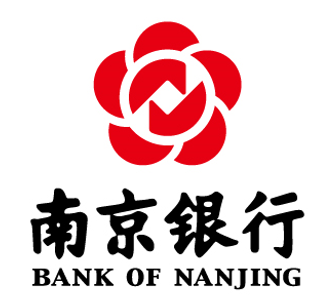Brief Overview of Organization
Bank of Nanjing Co., Ltd. was incorporated on February 8, 1996. Bank of Nanjing Co., Ltd. (hereinafter referred to as “we” or its derivative word) is a joint-stock commercial bank with independent legal personality and a Tier-1 legal entity system. Bank of Nanjing Co., Ltd. has changed its bank’s name twice. The bank introduced IFC and BNP Paribas as its shareholders in 2001 and 2005 respectively. As the first bank to start the listing counselling process among urban commercial banks in China, Bank of Nanjing Co., Ltd. was successfully listed in 2007. At present, the bank has 17 branches and 201 outlets. Bank of Nanjing Co., Ltd. was selected into Top 1,000 World Banks and Banking 500 by The Banker (a British journal) which has led to the bank’s ranking rising year by year. In 2021, the bank was ranked the 109th and 111th respectively. The bank was also ranked the 21st in the list of “Top 100 Chinese Banks”by China Banking Association.
Bank of Nanjing Co., Ltd. continues to strengthen the construction of its branches. Since the establishment of the first branch in 2007, the bank has continued to promote its cross-regional operation and has successively set up 17 branches in Taizhou, Shanghai, Wuxi, Beijing, Nantong, Hangzhou, Yangzhou, Suzhou,Changzhou, Yancheng, Nanjing, Zhenjiang, Suqian, Lianyungang, Jiangbei New Area, Xuzhou and Huai’an. In 2016, the bank achieved full coverage of Beijing, Shanghai and Hangzhou and all “cities divided into districts” in Jiangsu Province in 2016.
Bank of Nanjing Co., Ltd. was the first bank in China to try the development model of “off-site share participation in other urban commercial banks”. The bank became the largest shareholder of Bank of Rizhao, took a stake in Jiangsu Financial Leasing Company Limited, Wuhu Jinsheng Rural Cooperative Bank and Suning Consumer Finance Company Limited. The bank initiated the establishment of two village/township banks in YixingYangxian and KunshanLucheng, invested in the establishment of Xinyuan Asset Management Company Limited and Nanyin Wealth Management Company Limited, and established Zijinshan -Xinhe Financiers Club. The bank has been advancing on the road of exploring integrated operation.
Bank of Nanjing Co., Ltd. has always been adhering to its strategic vision of “to become a first-class integrated financial service provider among small and medium-sized banks”, with stable and rapid growth in all its business sectors, steady improvement in operational efficiency, continuous reinforcement of risk control, stable asset quality and continuous deepening of basic management.
Bank of Nanjing Co., Ltd. focuses on developing SME finance and retail business as its strategic business sectors, while it tries to enrich its business product system and strive to meet the financial needs of SMEs and individuals. The bank continues to promote financial market, asset management, investment banking, interbank business, and green finance as its special business sectors, with its business brand influence continuing to expand.
Summary of sustainability strategy
Bank of Nanjing Co., Ltd. strategy of sustainable development refers to the organic combination of adhering to its own development and fulfilling its social responsibilities to achieve the organic unity of economic, social and ecological benefits. By strengthening its support for green economy, low carbon economy and circular economy, the bank strives to enhance its environmental and social performance.
Bank of Nanjing Co., Ltd. strategy goals of sustainable development include a short-term and medium and long-term goal. The bank’s short-term goal is to guide its sustainable development through policy formulation, product innovation, process design, assessment and evaluation, customer management and other measures. The bank’s medium and long-term goal is to establish and adhere to the concept of “sustainable development”, improve its own environmental and social performance in all aspects and achieve a win-win sustainable development with its customers through the guidance of its policies and business.



